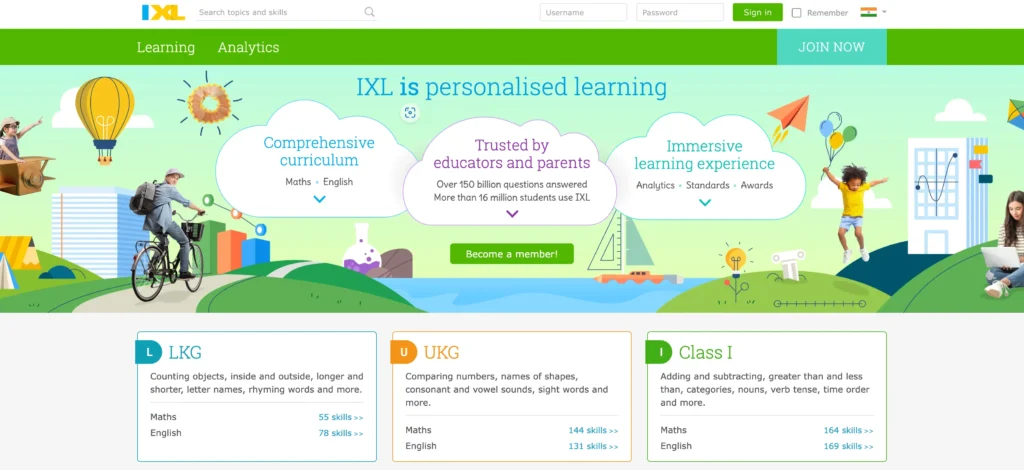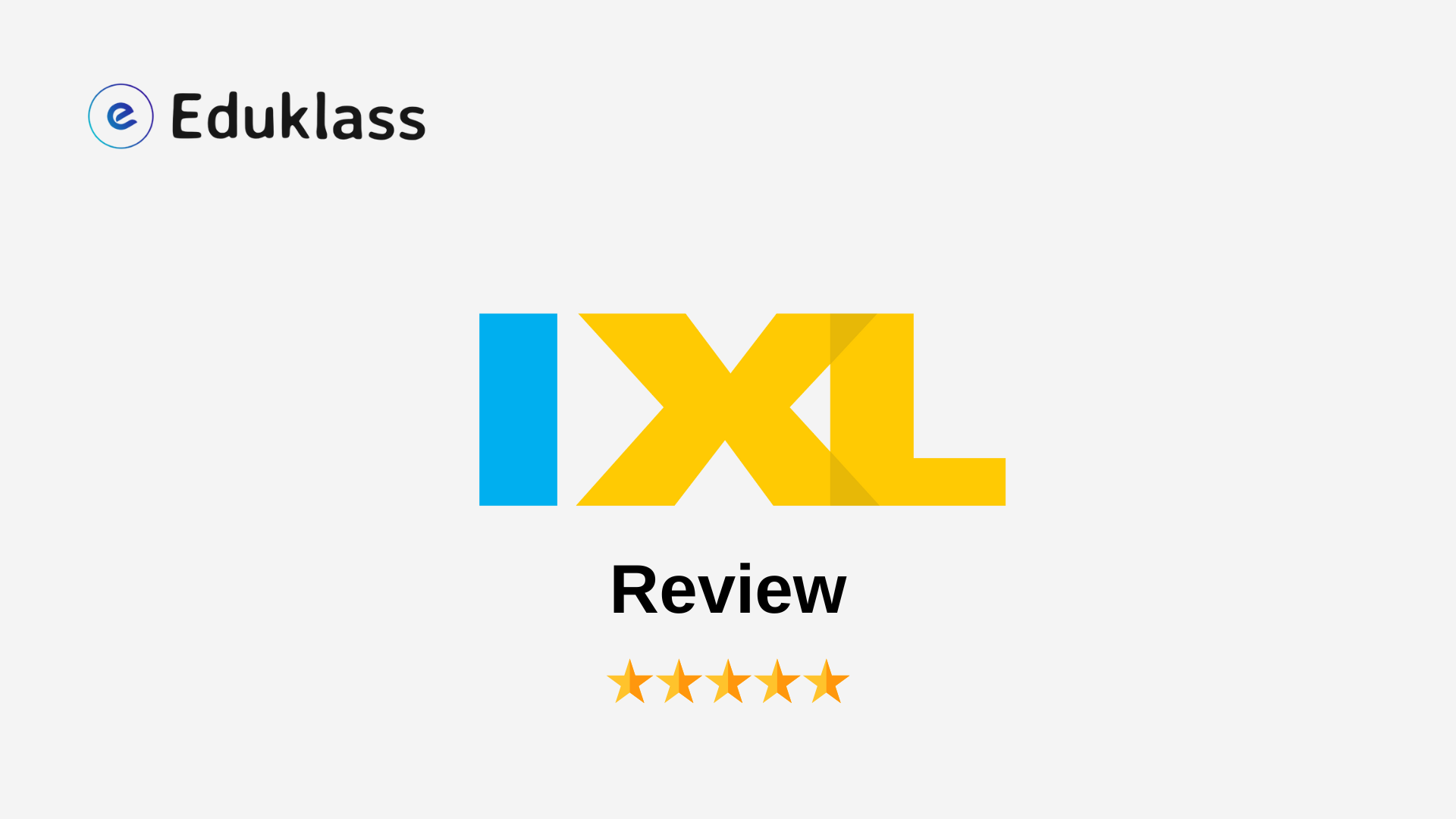Hey there! If you’re a parent, teacher, or even a student who’s heard about IXL, you’re probably wondering what all the fuss is about.
IXL is an online learning platform that’s been around since 1998, promising to help kids from pre-K to 12th grade master subjects like math, language arts, science, social studies, and even Spanish.
It’s got a slick reputation, with over 12 million students using it across the U.S. and billions of questions answered worldwide. But is it really the golden ticket to better grades and smarter kids?
As a copywriter who’s dug deep into reviews, user feedback, and the platform itself, I’m here to break it all down for you in a way that’s easy to follow.
Let’s dive in!
What Is IXL, Anyway?

Imagine a giant digital workbook that adapts to your kid’s skill level. That’s IXL in a nutshell. It’s a subscription-based platform where students tackle practice questions that get harder or easier depending on how they’re doing.
Teachers and parents love it because it comes with real-time analytics—fancy reports that show where a student shines or struggles. The idea is simple: practice makes perfect, and IXL gives kids endless chances to get it right while tracking their progress.
It covers a ton of ground—over 8,500 skills aligned with state standards and popular textbooks. Plus, it’s got a little gamification thrown in, like virtual medals and prizes to keep kids motivated. Sounds pretty cool, right? But here’s the thing: not everyone’s sold on it. Let’s unpack the good, the bad, and the “meh” based on what people are saying online.
Also read:
The Good Stuff: Why People Love IXL
First off, IXL has some serious fans—especially teachers and parents who geek out over data. One of its biggest strengths is the Real-Time Diagnostic. This tool is like a superpower for figuring out exactly what a kid knows and where they need help.
It pinpoints their working grade level and even breaks it down by subject strands (think fractions in math or grammar in English). Teachers say it’s a game-changer for planning lessons or helping a struggling student catch up.

The adaptive learning part is another win. If your kid nails a question, IXL bumps up the difficulty. If they’re stuck, it dials things back. It’s like having a personal tutor that never sleeps. Parents on sites like Common Sense Education rave about how it keeps their kids challenged without overwhelming them. One mom said her daughter went from dreading math to actually enjoying it because IXL made it feel like a game.
Then there’s the variety. With thousands of topics across multiple subjects, it’s a one-stop shop for learning. Whether your kid needs to brush up on multiplication or dive into Civil War history, IXL’s got it covered. Homeschooling families especially love this—it’s flexible enough to be a full curriculum or just a supplement.
And let’s not forget the analytics. Parents and teachers get detailed reports on progress, trouble spots, and even how much time their kid’s spending on it. It’s like a report card that updates every day.
Oh, and it’s safe for kids. No creepy ads or sketchy pop-ups here—IXL sticks to strict privacy rules like COPPA and FERPA, which is a big relief for parents worried about online safety.

The “Meh” Middle Ground
Kids earn virtual stickers and medals, which is cute, but it’s not exactly Minecraft-level excitement.
Compared to platforms like Prodigy, which turn math into a full-on adventure, IXL’s rewards feel a bit flat. It motivates some kids, but others don’t care about a digital high-five.
The explanations are another mixed bag. If a kid gets a question wrong, IXL shows them how to solve it. That’s great in theory, but reviews say the explanations can be confusing or too wordy. A teacher on Common Sense Education pointed out that they sometimes have to step in anyway because the hints don’t click for their students.
Who’s It For?
So, who’s IXL really good for? If you’re a teacher who loves data and wants a quick way to spot gaps in your class, this is your jam. It’s also a solid pick for parents who want a structured, standards-aligned tool to boost their kid’s skills—especially in math or language arts. Homeschoolers? You’ll like the flexibility and progress tracking.
But if your kid gets stressed easily, hates repetition, or needs more creative learning, IXL might not be the best fit. It’s less about teaching new concepts and more about practicing what they already know. So if they’re starting from scratch on something tough, you might need to pair it with a teacher or another resource.
How Does It Stack Up?
Let’s compare it to the competition. Khan Academy’s free and offers videos alongside practice, which makes it more engaging for some. Prodigy’s a math game that kids adore, though it’s narrower in scope. Brighterly focuses on one-on-one tutoring with a personal touch IXL can’t match. IXL’s strength is its breadth and analytics, but it’s not the most fun or flexible option out there.
My Take: Is IXL Worth It?
Here’s the deal: IXL isn’t perfect, but it’s not trash either. It’s a powerhouse for practice and tracking, and if your kid can handle the grind, it can seriously level up their skills. The analytics are gold for parents and teachers who want to stay in the loop. But that SmartScore system? It’s a buzzkill, and the repetitive vibe won’t win over every kid.
If you’re thinking about trying it, start small—maybe use the free daily questions first. See how your kid vibes with it. For some, it’s a lifesaver; for others, it’s a stressor. It’s all about finding the right fit for your learner. Me? I’d give it a solid 7 out of 10. It’s got chops, but it’s not for everyone.
What do you think? Have you tried IXL? Drop your thoughts—I’d love to hear your take!




